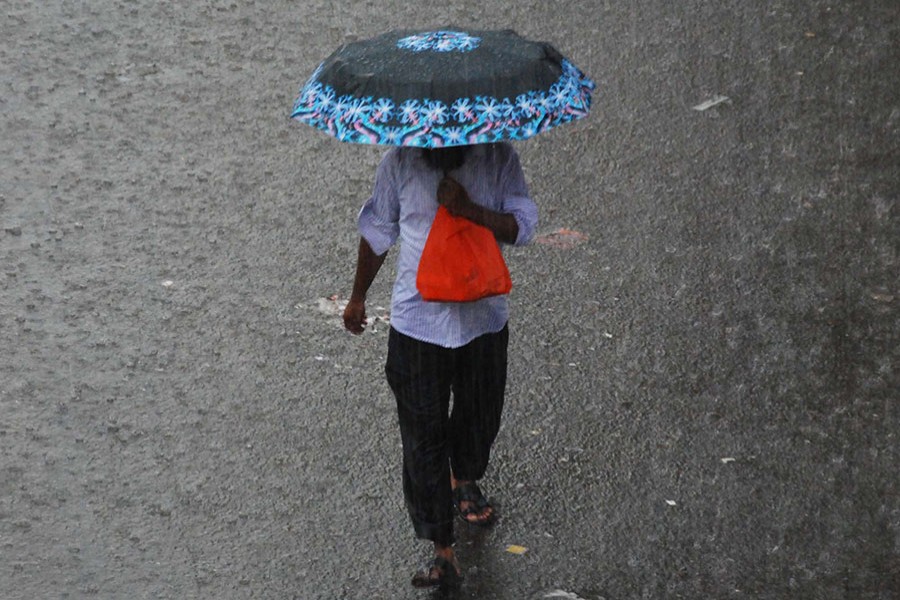
Published :
Updated :

In midst of a hot spell that had been raging in the capital for over a week, the brief bouts of rain and relative cool came as a pleasant respite. People in the heat wave-hit other areas had been expecting it eagerly. But it hadn't happened immediately. There are a few plausible reasons behind the scorching nature of summer this year. In spite of the high temperature, the Bangla months of 'Boishakh' and 'Joishtha' are normally accompanied by seasonal summer storms called nor'westers coupled with showers. It brings a relief to the sizzling summer which is experienced from the start of the year's summer season. To the great distress of people, the year has seen veritably no storms except brief spells of shower accompanied by gusts. The rains were not sufficient to fully cool the atmosphere. The mild heat wave sweeping parts of the country this year is not an annual phenomenon. To the woes of people, Bangladesh has been passing through such heat waves for quite some time. These factors in combination have, apparently, contributed to the deterioration of the whole atmosphere in Bangladesh. A great relief thus lies in the unexpected interludes of summer rains.
The punishing nature of searing summers has a lot to do with climate change impact. Many would like to bring up the issue of global warming, though its expanse is quite vast --- covering weather abnormalities like polar ice melting and the breakup of glacial masses. In terms of day-to-day realities, however, experts in weather and its impact on humans would like to refer to the hard times the urban working class may have started passing through from this year. Summer has hardly been a pleasant time in Dhaka. The season is synonymous with all possible physical ordeals ranging from sweating, thirst and the feeling of being drained out. Probing people do not have to go far. The heart of the city has many spots that offer scathing views of the extent of miseries caused by the hot season.
In the city, dozens of views showing the sufferings of working people have become common sights. The punishing heat of the sun takes its heavy toll on the rickshaw-pullers and the manual workers, including day-labourers. People dare not come out in the open with a blazing sun flashing above. Both idlers and the working class people take shelter under the roadside trees. All of these views have been the part of Dhaka life in the season of summer. A difference, however, maybe from this year, could be a prolonged summer coupled with the faint signs of heat waves. This is not unusual. Prior to their becoming heat wave-prone lands in Arica, West Asia and in parts of the sub-continent, all of these countries used to have their age-old normal summers. With the global warming taking a worse turn, the season of summer began staying longer than usual in many countries.
Given the present alarming trends in several regions heating up fast, newer countries are feared to be in the line. Bangladesh has traditionally been considered a land with a moderate summer. From this year, the assessment may have to be changed. Bangladesh may not be bracketed along with the countries with temperate climate. Nor will it be defined as a land of tropical monsoon climate. Few of the country's general people are aware of the changes wrought to its environmental features by the advancing global warming. Nothing can stop it. By the time it will be realised in its full range, all the country's inhabitants and the related sectors, like agriculture, are feared to go through it in a bitter process.
shihabskr@ymail.com


 For all latest news, follow The Financial Express Google News channel.
For all latest news, follow The Financial Express Google News channel.